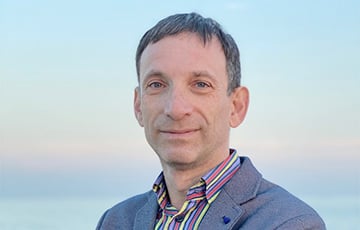What’s Putin Afraid Of?
5- VITALY PORTNIKOV
- 21.08.2023, 7:40
- 18,634

The Kremlin’s head becomes a Fear Dictator.
When researchers Sergei Guriev and Daniel Treisman were working on Spin Dictators: The Changing Face of Tyranny in the 21st Century, the reign of Russian President Vladimir Putin was one of the best illustrations of the changing dictatorships of our century. The 20th century, according to the authors, was the century of fear. Joseph Stalin did not just deceive his compatriots - he froze them with fear. There were not even thoughts of free elections in the communist Soviet Union, but there were constant repressions, the Holodomor and the Gulag.
Vladimir Putin chose a different way - the way of the so-called "managed democracy", the way of total lies. At first glance, there are competitive elections, but their winners are known in advance. Free media? The Kremlin establishes the political agenda.
Private initiative? What awaits a major entrepreneur who does not want to reckon with Putin's interests is quite clear from the fate of Khodorkovsky or Berezovsky. But there are oligarchs who are ready to cooperate with the Kremlin and they feel good...
Citizens may think that they live in a democratic country and are capable of influencing their future, although their influence is reduced to a minimum level even when they vote in district government elections.
However, over the course of 18 months of the large-scale war, Putin has changed from a Spin Dictator into a Fear Dictator. He could not win over Ukraine, but he won over his own country.
Literally in a matter of months, the entire decoration of "managed democracy" was demolished. All publications that were still allowed to broadcast an alternative point of view were closed. He began to imprison opposition activists with almost life terms. They also started to introduce special school books into the educational process, which reminded people of Stalin's "Short Course" on the history of the party. The people became more dependent on state enterprise employment following the private sector depression.
One might ask: The majority of Russians support him in the war against Ukraine and why did Putin become a Fear Dictator? Opinion polls each time register that the majority of the Russian president's compatriots trust the official propaganda and Putin's rating goes only up after another decision on aggression.
When Aliaksandr Lukashenka became a Fear Dictator after being a Spin Dictator, this was quite obvious. Lukashenka became aware of the total rejection of his policy and his figure by the majority of his compatriots after the 2020 presidential elections. Hundreds of thousands of people on the streets of Minsk and other cities of Belarus convinced him better than any polls. But we have not seen anything like that in Russia either before or during the war with Ukraine.
It seems to be a paradox but Putin is afraid of the future. We can say that this former Soviet intelligence sees the future deeper than his Belarusian colleague, and he has slightly less confidence in the eternal love of fellow citizens.
Putin is well aware that in the event of any economic problems, citizens will inevitably raise the question of his effectiveness and the expediency of continuing the war. He understands that opposition that does not exist - in the elites, in business, in society - can literally arise out of nowhere. He remembers very well what happened to Russian rulers who lost wars or simply did not succeed. But he may also remember something else: a brutal dictatorship, such as Stalin's, could afford a military defeat - as, for example, during the war with Finland.
Therefore, one can say that Putin needs a frightened society soon. He needs to have the country during the crisis and he needs people to be afraid of the special services, the courts and the security apparatus. So that the defeat in the war with Ukraine does not lead to the collapse of his power.
If Putin were sure of his victory in Ukraine, he could afford not to strengthen the regime, not to become a Fear Dictator. That is why the new model of dictatorship is the best proof of his uncertainty about the future.
Vitaly Portnikov, Radio Liberty









